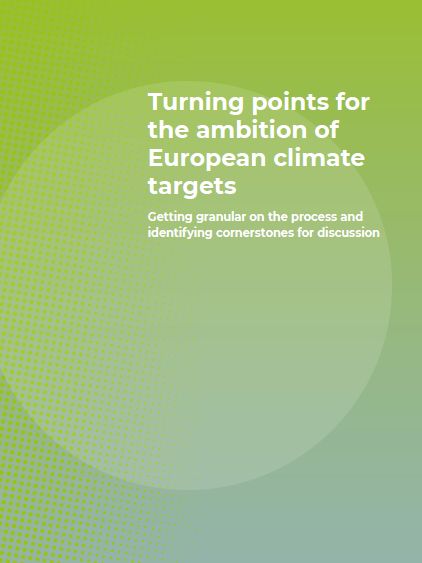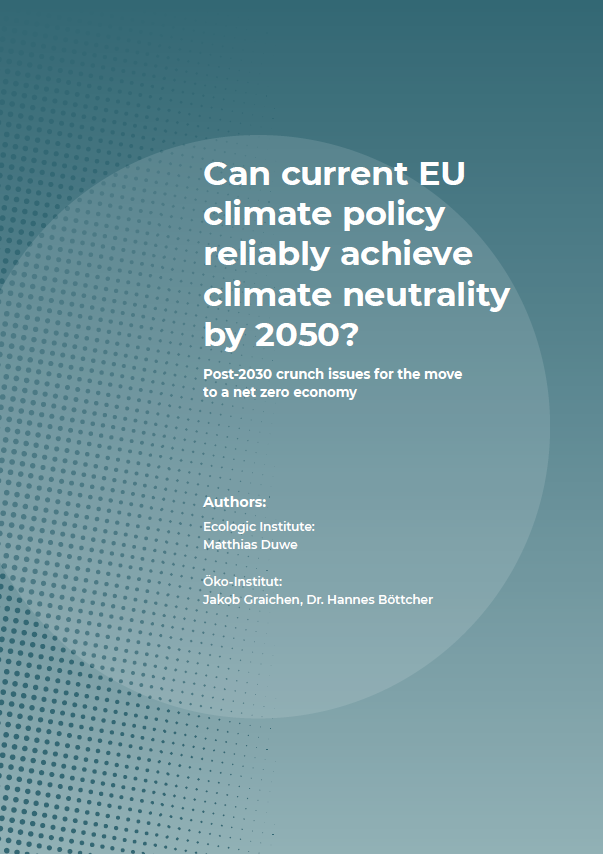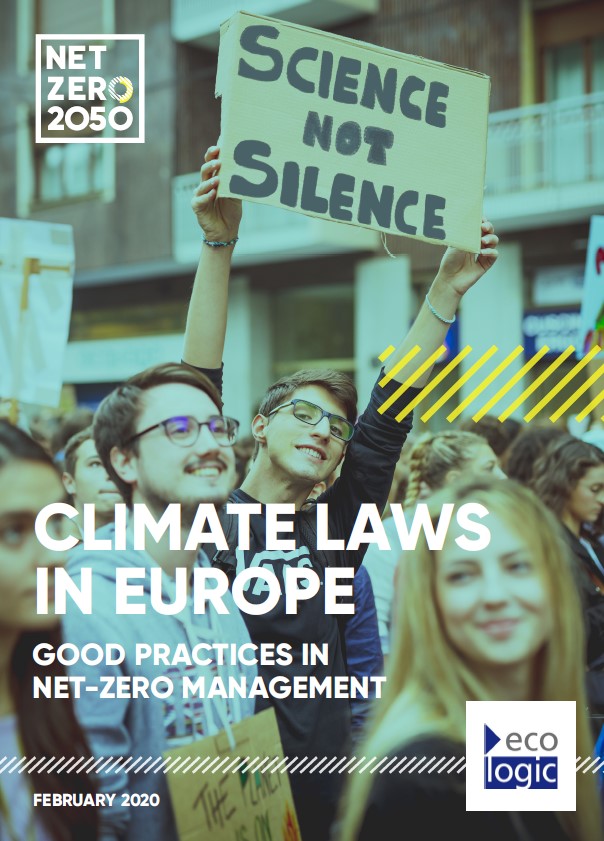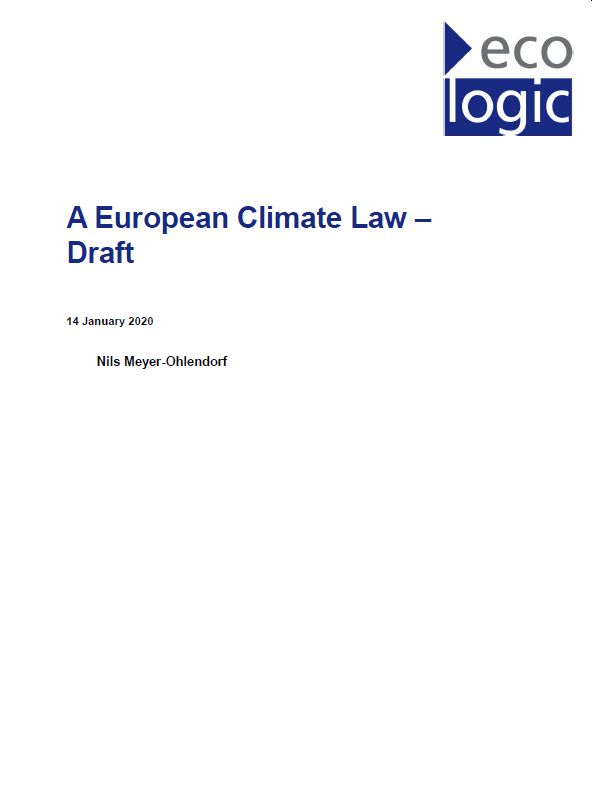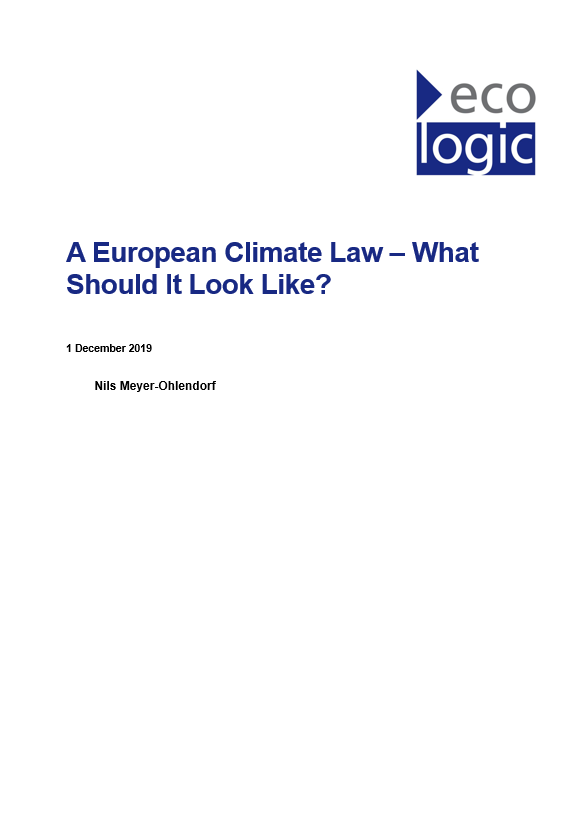Turning Points for the Ambition of European Climate Targets
Getting Granular on the Process and Identifiying Cornerstones for Discussion
- Publication
- Citation
Gores, S., Fallasch, F., Siemons, A., Duwe, M., Evans, N. 2020: Turning Points for the Ambition of European Climate Targets. Getting granular on the process and identifiying cornerstones for discussion, Studie im Auftrag des Bundesministerium für Umwelt, Naturschutz und nukleare Sicherheit, Berlin: Öko Institut and Ecologic Institute.
A new paper by Öko-Institute and Ecologic Institute contributes to the upcoming discussion on the EU climate target for 2030 and the accompanying review of central policy instruments and governance structure. A successful implementation of a climate-neutrality trajectory in line with the Paris Agreement will be crucial for the development of reduction efforts and emission pathways in the EU and its Member States. The paper highlights interlinkages between relevant processes at the European level and those under the Paris Agreement. An overview diagram visualizes the current timeline of these processes and helps to identify critical moments and windows of opportunity in the next few years, for raising EU ambition. Another figure helps to understand the key levers of the target setting.
The paper was prepared by the environmental think tanks Öko-Institute and Ecologic Institute within the context of the project "Achieving of targets and ambition raising with EU climate protection legislation in medium (2030) as well as in the long term (2050+) perspective", commissioned by the Federal Ministry for the Environment, Nature Conservation and Nuclear Safety (BMU). Please note that the views expressed in this publication are the sole responsibility of the authors and do not necessarily reflect the views of the Federal Ministry for the Environment.
As part of the same project, a second report will show the results of the analysis of potentials for natural and technical sinks in the EU and will identify possibilities for their inclusion into future EU-climate policy legislation. Another report will discuss possibilities for the target setting of energy and climate legislation after 2030 and for future climate policy architecture.
